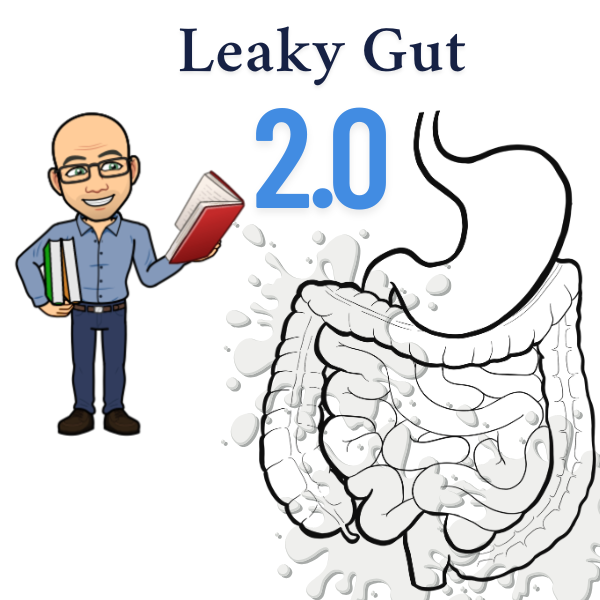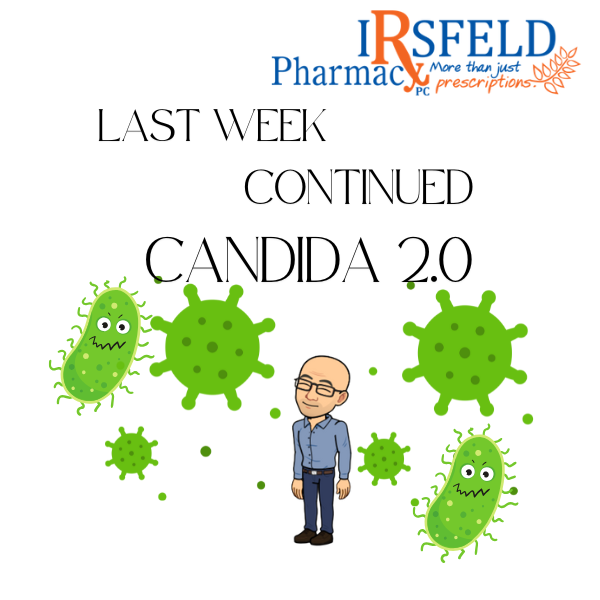Have you ever heard of this concept?

Gut Vascular Axis
Today will be another topic discussed at the conference my staff and I attended a couple of weeks ago. We have all heard about the gut/brain connection and how a healthy gut is essential for what is going on in the brain, but did you know there is a direct correlation between the health of our gut and its effect on the cardiovascular system? I didn't know it either, but as we get into the weeds on the gut/vascular axis, it will become evident as I unfold the different aspects of this topic.
Before we dive in, I would like to update you on the Function Health panel I talked about several weeks ago. The panel is the 100+ tests for $499 through a company called Function Health. The company has contracted with Quest Diagnostics to administer the tests at their sites, and if you go to the website, you can find independently owned labs that fall under the Quest Diagnostics umbrella. Unfortunately, these independently owned labs are not contracted to draw the Functional Health labs. There are no Quest Diagnostic labs in ND or SD; the closest is Billings, MT, going west, or Minneapolis, MN, going east. This is unfortunate as the test is quite amazing, so if you are considering this test, you will have to travel to get it done. I will keep you posted on the results of my follow-up labs.
The gut-vascular axis is an area of research that explores how the health of our gut impacts our blood vessels and overall cardiovascular health. Scientists have discovered that specific chemicals produced by the gut can affect blood vessels, leading to increased or decreased risk of diseases like heart disease. Two of the most studied molecules related to the gut-vascular axis are short-chain fatty acids (SCFAs) and lipopolysaccharides (LPS). Let's look at how each of these influences the gut-vascular axis.
SCFAs are molecules gut bacteria produce when they break down fiber from our food. The most common SCFAs are acetate, propionate, and butyrate. These SCFAs play essential roles in maintaining gut health, as they serve as an energy source for the cells lining the intestines and help keep the gut barrier strong. However, SCFAs don't just stay in the gut; they can enter the bloodstream and impact blood vessels.
When SCFAs reach the blood, they help reduce inflammation and regulate blood pressure. High blood pressure has been associated with decreased intestinal microbial diversity and SCFA-producing bacteria. It has also been observed that high blood pressure is more pronounced with increased intestinal permeability (leaky gut), fibrosis, and decreased villous length of the small intestine.
Inflammation is a key factor in cardiovascular diseases, so SCFAs benefit vascular health. SCFAs also influence the immune system, keeping it balanced and reducing the risk of chronic inflammatory conditions. A high-fiber diet rich in vegetables, fruits, and whole grains encourages the production of SCFAs and promotes heart health.
When diet cannot fulfill the needs of the gut, it may be time to look at supplementation to aid the process. Cranberry extract has many excellent properties, including increasing the microbiome's diversity with an increase in Akkermansia, bifidobacterium, and butyrate-producing bacteria. In one study, 28 patients received a daily dose of 109mg of polyphenols from cranberry extract, equivalent to 60 grams of fresh cranberries, and within 4 days, there was significant improvement in the bacterial diversity of the gut. Who says cranberries are for Thanksgiving only?
I have written about LPSs several times, so this should be a review for most readers. LPS are molecules found in the outer membrane of certain bacteria, with the highest concentration in the gut. If the gut barrier becomes "leaky" due to a poor diet, stress, infection, alcohol consumption, overeating, smoking, or other factors, LPS can escape into the bloodstream. Once in the blood, LPS triggers an immune response that causes inflammation. Chronic inflammation from LPS has been linked to high blood pressure, atherosclerosis (hardening of the arteries), and other cardiovascular diseases.
Finding out if you have LPS in the blood can be done with a gut barrier test done with a blood draw, or a simple fingerstick blood test. The test looks for immunoglobulins that have formed for LPS, ocludin, and zonulin, indicating these markers are now in the blood. If they show up in the blood, the lining of your gut has been compromised, and you will have a leaky gut.
Maintaining a healthy gut can reduce LPS levels. Eating a balanced diet with plenty of fiber and reducing stress can help keep the gut barrier strong, preventing LPS from leaking into the bloodstream and triggering inflammation.
Taking supplements can enhance the lifestyle modifications listed above, with a focus on probiotics, prebiotics, and polyphenols. Each of these three supplements has great benefits for gut health, but the real benefit can come into play when you dial down to specific ingredients. Nutridyn’s Ultrabiotic Prebiotic checks many of the boxes necessary to lower LPS levels. The combination of red wine polyphenols, organic gold kiwi, xylooligosaccharides, pomegranate and cherry extracts all working together to lower LPS by boosting targeted probiotics while increasing SCFAs.
The gut-vascular axis shows us how gut health directly impacts blood vessel health. Maintaining a balanced diet rich in fiber, reducing intake of red meat and animal products, and adding targeted nutrients can help promote a healthy gut and protect our cardiovascular system. It is an exciting time as scientists drill down on specific nutrients that target the gut-vascular axis, looking to prevent and manage heart disease.
You may be tired of me quoting Hippocrates but this is clearly another example of one of his quotes that "all disease begins in the gut". The time to take care of our gut has never been more critical as we are continually bombed with toxins from our environment, and having a healthy gut goes so far in helping our overall health. I apologize if things got a little technical today, but sometimes, it's important to dig deep into some of these topics.
Stop by or call the pharmacy for more information on the gut/vascular connection or targeted nutrients to support this connection. Please visit my website at www.irsfeldpharmacy.com to find this and other archived articles in the blog section.
Until next time, be vigilant about your health!!












Share On: